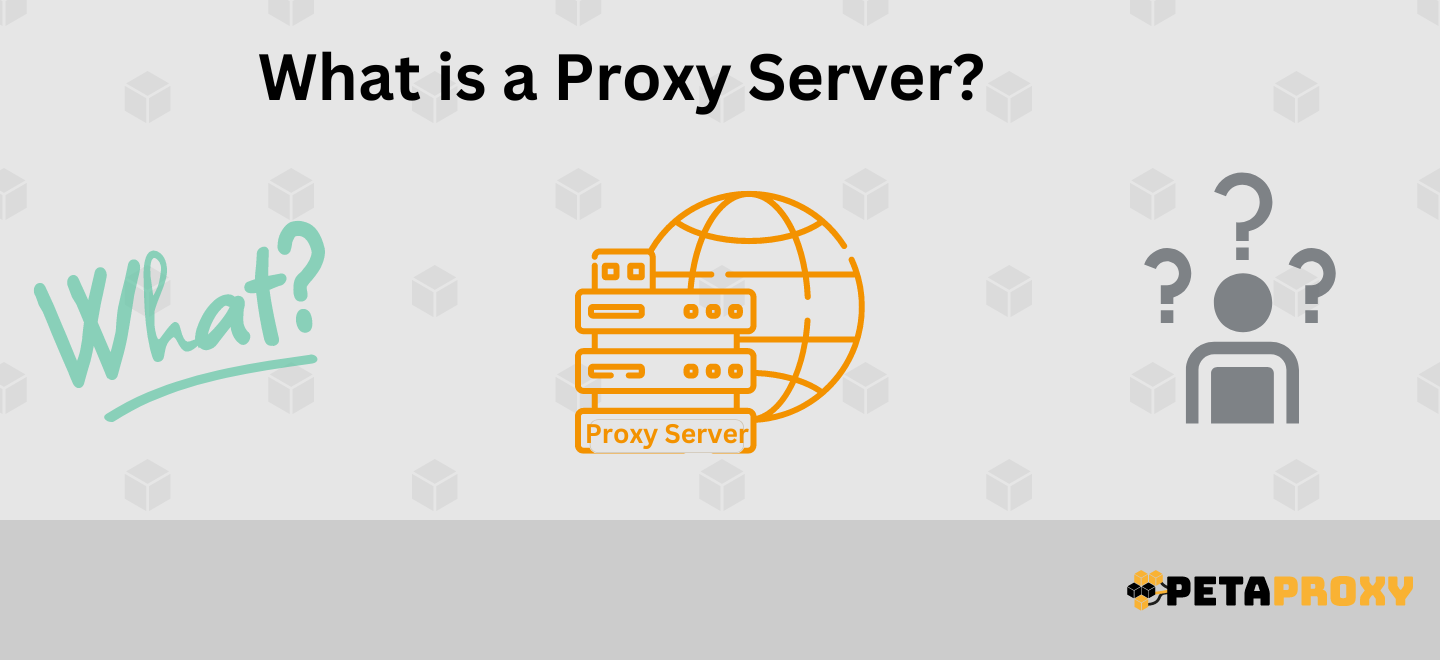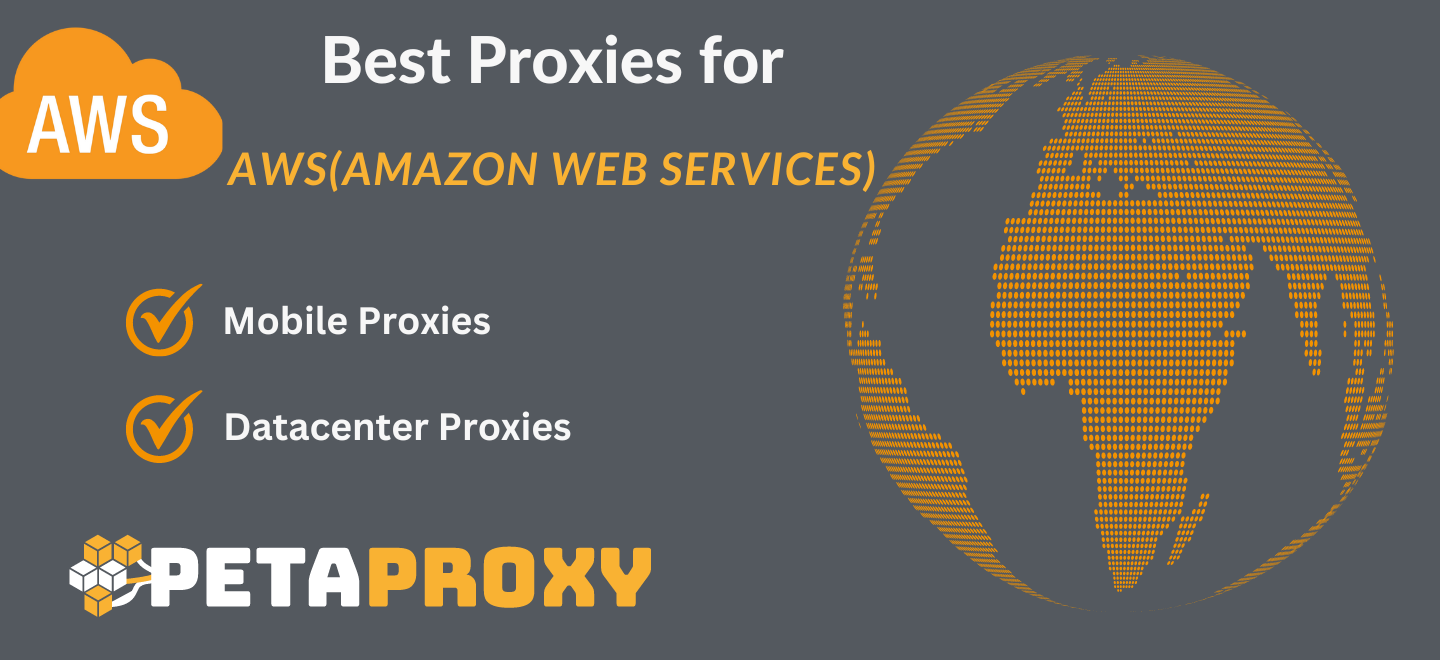There are many situations when you either want to protect your identity or access a website through multiple connections. In those cases, it’s possible that website can block you, if it feels something out of the ordinary. That’s where a proxy server comes into play. The role of a proxy server is to help add an extra layer of security, while also circumventing any potential website restrictions.
In order to make sure everyone is on the same page, let’s talk about “what is a proxy server” first.
What is a Proxy Server?
At its core, the proxy server is a gateway. What it does is it passes data anonymously between the user and any website. Normally, a user will connect to the internet directly, and their computer will ping the website’s address for a reply. If you use a proxy server, that becomes the middleman. The server will communicate with the internet in your behalf.
That means your traffic goes through the proxy before it ends up reaching the targeted destination. All communication happens through the proxy server, which helps eliminate potential security risks. That’s why such a server is ideal for businesses or security-minded people that want to actively protect their identity.
On top of that, using a proxy server can be a great way to perform data scraping. Since this is a process that requires you to create multiple connections to the same website, it’s very common for websites to ban your IP. If you use a proxy server, you will get to access multiple IPs, which helps circumvent this problem in a very effective and quick manner.
What are the Main Roles of a Proxy Server?
Every business can use proxy servers in a multitude of ways. But if you want to establish such a server, you usually do that for very specific reasons, like the ones below:
Some companies employ the use of a proxy server because they want to boost the efficiency of their current security. Having a safe way to connect to other websites and not risk leaking company data is very important.
Such a server can also help secure the employee’s internet activity and traffic. Many times, the way hackers get into a business is by studying employee network activity, and then they send phishing links. That gives them access to the inner business network.
Moreover, a proxy server can also help balance the internet traffic. You can use it as the means to prevent any crashes, that can sometimes translate into a financial loss. It also helps ensure that everything is set up correctly.
With help from a proxy server, you can also control the websites your employees have access to in the office. Many times, hacking attacks are successful because employees access external websites. This can be stopped if you use a proxy.
Lastly, a proxy solution can help save bandwidth. What it does is it compresses the incoming traffic or it caches files. That’s important if your company doesn’t have unlimited bandwidth and it’s currently dealing with any type of limitation.
How does a Proxy Server Work?
The entire process depends on IP addresses, since all devices that connect to the internet need one. That’s how your device is recognized on the internet. And it also shows the advantage of having and using a proxy server. While proxies can work in a multitude of ways, a proxy server usually goes through a few, similar steps every time:
- Your device will make a request to visit the website you want, and that request is sent from your device to the proxy server.
- The proxy server will read the request and it will start interpreting it. This process is very fast and usually it takes a few milliseconds.
- Once approved, the request is then sent to the internet server that you wanted to access in the first place.
- That internet server will read your proxy server’s IP, and it sends the necessary website data to the proxy you used.
- After the proxy server receives that data, it will extract it, and it will also check if there’s any type of malware in it.
- Only after the data is marked as safe, it will be sent to the requesting device. The focus is on maintaining safety for the user.
Making sure that you have a clear, safe experience online is what the proxy server excels at. And that’s the reason why you want to use a proxy server, because it has amazing efficiency, and it also helps prevent a lot of potential attacks. On top of that, a proxy server can provide you with a multitude of IPs. That means even if you need to perform data scraping, you can do that efficiently and without risking a potential IP ban.
Is a Proxy Good for Online Anonymity?

One of the core advantages that come from using a proxy server is that you aren’t directly connected to the websites you want to visit. All the traffic goes through your proxy, and the same thing is valid for all the data that comes from the websites too. That’s important, because not only do you avoid risking malware attacks, you also stay anonymous the entire time.To stay anonymous, a anonymous-proxy is the best solution.
That’s important if you want to ensure that your data is not stolen. Some websites can trick users to visit them, yet when you access those, they have embedded malware. That’s designed to capture data (which might be confidential) and send it back to the website owner. Thanks to using a proxy, you don’t have to worry about any issues like that. Your entire browsing experience is safe, and you don’t have to worry about delays.
What Data Does Your Proxy Server Filter?

All data sent by websites to your computer is filtered by the proxy server. That means any image, app or emails will be filtered, in order to ensure your safety. That’s important, because some of the files you will receive from a website might have instances of malware. If that’s the case, the proxy server will shut down your connection and protect you from a potential attack.
Some proxy servers have encryption capabilities too. In case the target website requests a password/login details, then those details are encrypted. It’s very useful to have such a feature because it will help deliver an extra tier of protection. Not only that, but you won’t have to worry about any wrong data being exposed.
Understanding Proxy Server Types
Proxy servers are an important part of browsing the internet safely and anonymously. To get the most out of your time online, you need to know about the different kinds of proxy sites. From HTTP proxies to SOCKS proxies, each type is used for different things and provides different amounts of privacy and safety.
So, let’s dive into the various types:

The datacenter proxy is a server which you can find in a datacenter, and it’s the one processing all the user requests. Generally, these are an inexpensive option if you want to use a proxy, and you can harness all those benefits right away. They lack a high level of anonymity, which you might want to consider.
Here are some pros of datacenter proxies you should know:
High Performance: Datacenter proxies are known for having fast and stable connections that can be used for stuff like reading, tracking, and other online activities.
Scalability: They are easy to make bigger to handle more traffic or bigger projects, so businesses and people whose needs change can use them.
Geographic Flexibility: Datacenter proxies let users access material from all over the world, which is useful for geo-targeting and getting around limits based on location.
Versatility: These proxies can be used for many things, like scraping the web, managing social media, keeping an eye on SEO, and more.

These will provide you with an IP address that belongs to a physical device. The thing to note here is while these cost a bit more, they might also be blacklisted by some websites. However, they can be a solid option to consider for most users.
Here some pros you should know:
Authentic IP Addresses: Residential proxies use real IP addresses that are given to users by their Internet service providers (ISPs). This gives users real online names and lowers the risk of being caught.
Geographical Diversity: Residential proxies offer IP addresses from all over the world, which makes geo-targeting and accessing material that is only available in certain areas possible.
Compatibility: Residential proxies work with many online services and platforms, which means they can be used for many things, such as web searching, managing social media, and online shopping.

While these are available for free, that does have some downsides. You will not have a high security level, due to the free nature of the servers. On top of that, their speed tends to be extremely low, which is why paid proxy servers are a much better option.
Here are some cons of using public proies you should consider:
Unreliable Performance: Public proxies often have slow connection speeds and go down a lot, which makes surfing difficult.
Limited Availability: Because of high demand, public proxies may not be available all the time, making it hard to find a trusted proxy server when you need one.
Security Risks: Because hackers frequently use public servers to carry out bad deeds, they pose security risks like data breaches and malware attacks.
Lack of Privacy: Because they are open to everyone and may keep logs of what users do, public proxies don’t protect your privacy as well as private ones.
IP Address Blacklisting: Websites and online services are more likely to not let people use public proxies because they are often used for spamming and other bad things.
Note: There are a lot of risks that come with using public proxies, such as speed issues, limited access, security holes, lack of privacy, and the chance that your IP address will be blacklisted. For the highest level of security and dependability, we strongly advise against using public proxies. Instead, you should look into better options like a trusted proxy provider such as petaproxy.
These servers will share an IP address shared by other people. They are an inexpensive solution, however, that also means other people used the IP and they might be banned by some websites. Yet if you want a cheap proxy solution, it can be an option.
In the case of a rotating proxy, you have an IP address assigned to every user. When you initiate a new connection, you automatically receive a new address. That can be great if you want to increase your security or establish multiple connections to the same website.
The reverse proxy is positioning itself in the front of web servers. What it does is it forwards requests from the browser towards the web servers. It will identify user requests at the network edge and then send those requests to the origin server.
Is a Proxy Server different or similar to a Firewall?

Firewalls are designed to identify your traffic and then narrow down any possible problems. It will take action only when 1 or more of the security roles are violated by the packets. In the case of a proxy server, your entire web request and responses go through the proxy. It’s ok to use a firewall and a proxy, but using a proxy server is important if you’re looking to safeguard your data and stay anonymous.
The firewall will just protect you from any potential malware attacks. However, the proxy will also keep you anonymous. Any websites you visit using a proxy will not be able to identify any of your personal information. That becomes a huge advantage if your focus is to stay anonymous online and protect your identity or personal data.
Is a Proxy Server similar to a VPN?

The role of a VPN is quite similar to a proxy server. They both allow you to bypass geographical restrictions and hide your IP from websites. The difference is that a VPN will encrypt the network traffic, and it will also add an extra layer of security. However, the downside of using a VPN is that it doesn’t use a cache that speeds up your internet access.
What that means is the VPN experience is a lot slower, and websites can take a longer time to load. Thanks to caching capabilities, proxy servers don’t have such a problem. That makes them a lot more powerful and efficient if you value speed. Both of them are a great option if you want to stay anonymous and increase your overall security while online.
What are Anonymous Proxy Servers?
There are 3 levels of anonymous proxy servers, as you can see below:
The high anonymity proxy server will make your original IP address anonymous, and it won’t show itself as a proxy to the web domains. IPs also get changed if there are any IP blocks encountered.
An anonymous proxy server will change the destination IP address to the proxy server. However, this one will identify itself as a proxy server, so the web domain knows a user is relying on a proxy solution.
You have the transparent proxy servers. These don’t anonymize the IP address of the user. It can be used for monitoring users connected to networks and content moderation, but it’s not exactly helpful when it comes to anonymity.
Can you Access Geo-Restricted Content using a Proxy Server?

Absolutely, one of the main benefits of using a proxy server is that it hides your IP, thus hiding your location. You can use a proxy from another country and access content that would normally be blocked in your country.
That’s the reason why a lot of people choose to connect to a proxy server and watch Netflix or HBO content. Many times, you will have access to content that’s locked in your region. The same thing is valid when it comes to accessing certain apps or tools, among others. The use of a proxy server circumvents that, thus offering an open way to access anything you want online.
Conclusion
Using a proxy server is an ideal way to improve your privacy and also enhance your overall online security. It can be great for web scraping, but at the same time it can speed up the way you access various websites online.
Additionally, a proxy server also helps you save bandwidth, and it also allows businesses to lock what websites can be accessed by their employees. Plus, you can even use a proxy server if you want to access geo-restricted content.
That makes using a proxy server an excellent solution for everyone that needs improved privacy and security in the online world!






